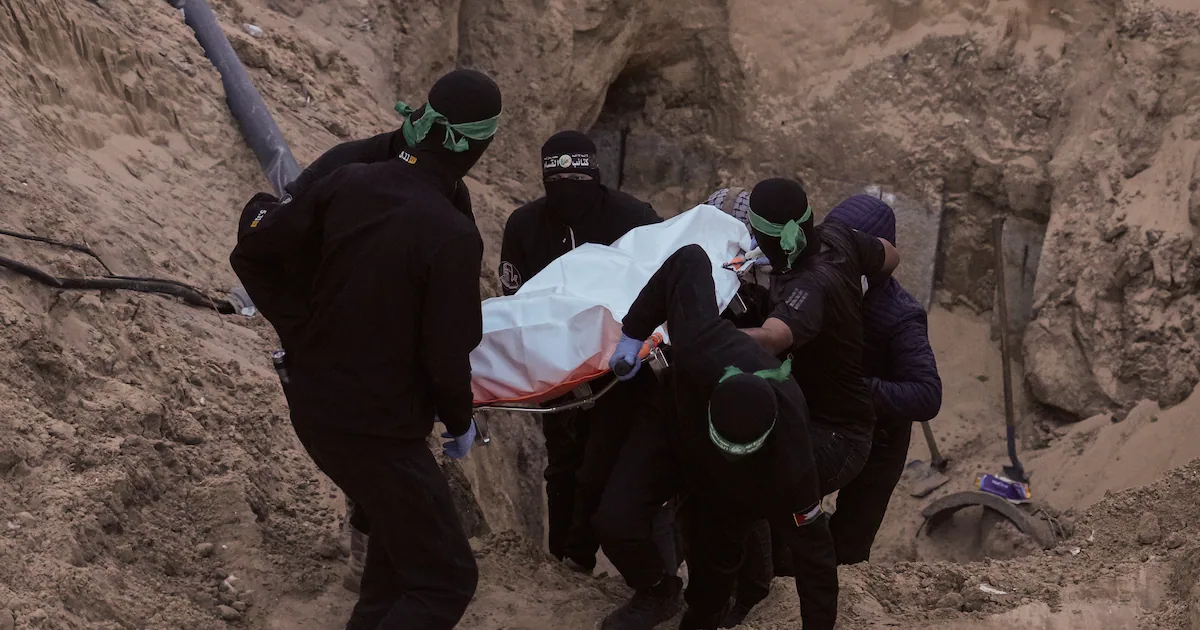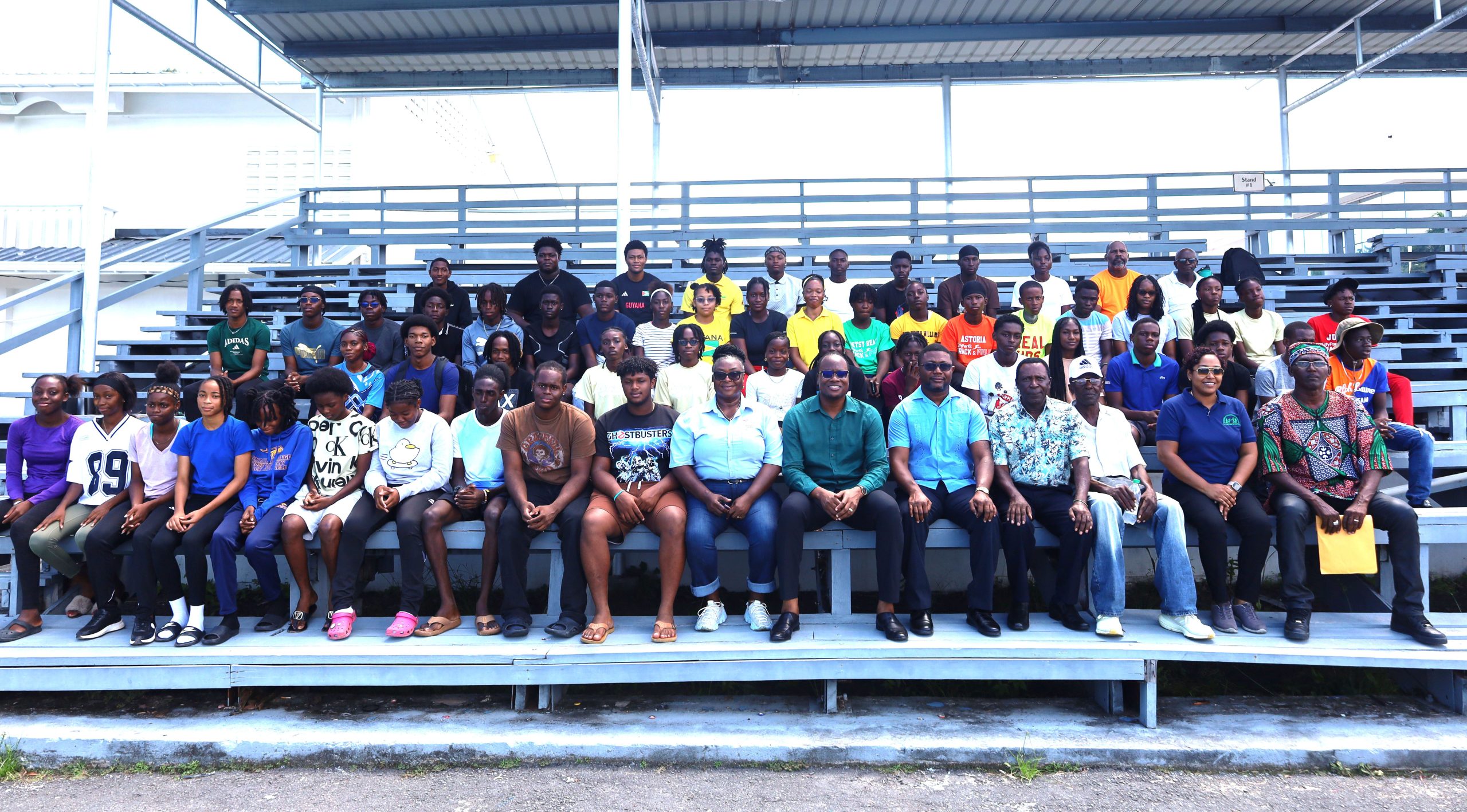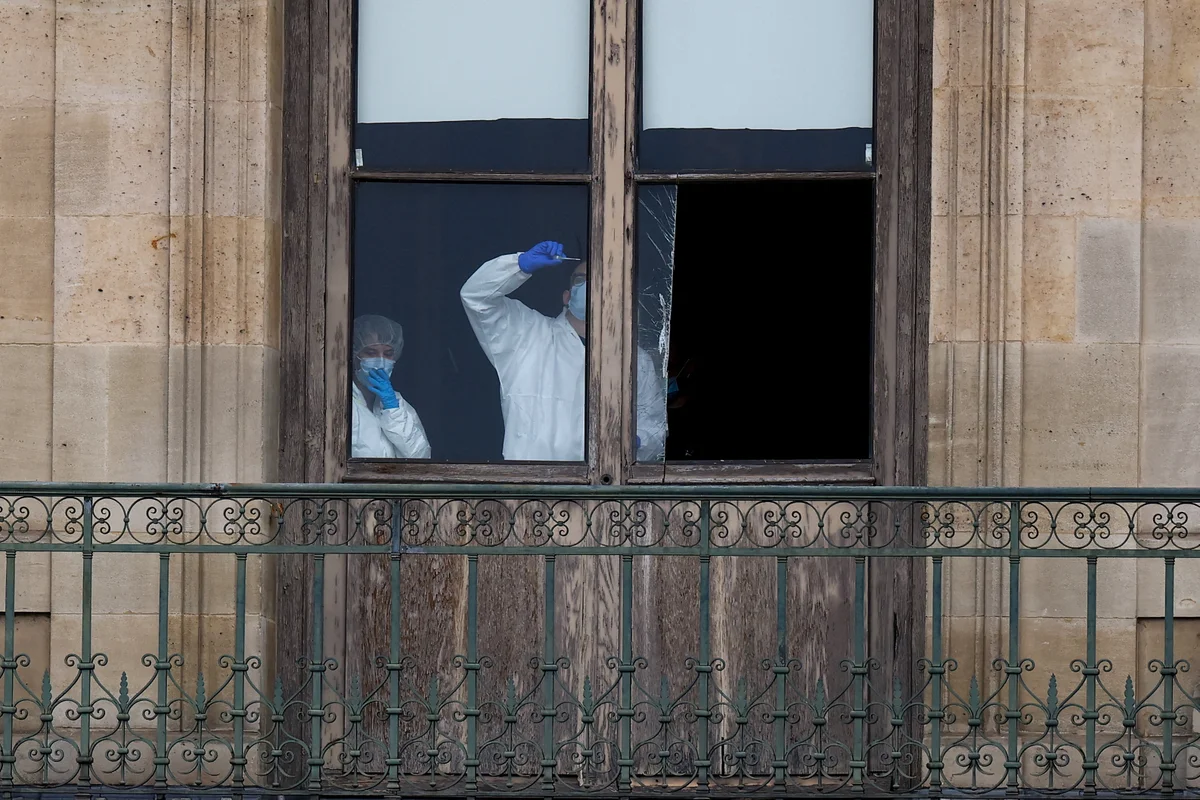Copyright The Atlanta Journal-Constitution

TEL AVIV, Israel (AP) — The announcement Monday that Hamas had released the body of another hostage offered hope to 13 families and an Israeli public desperately waiting for the remains of loved ones to come back from Gaza. Then came word that the militant group had returned only partial remains from a hostage who was recovered by Israeli troops nearly two years ago. That brought fresh heartbreak to the families of the hostages whose bodies are still somewhere in the devastated Palestinian territory. hcihw ot ot eht eht eht eht dias desaeler trap srehto ro ylno no slaiciffo fo fo fo ,yrtsinim ynam dellik si ,deifitnedi evah sah .tnemnrevog gniwollof srethgif gnirud .syad tub seidob seidob neeb eb kcatta raeppa dna gnidrocca snainitselaP .tcO yrtsiniM learsI htlaeH nur-samaH del-samaH azaG 57 ,7 ,3202 591 Judaism and Islam call for immediate burial In Judaism and Islam, the expectation is for immediate burial after death. Among Jews, the practice is traced to a line in Deuteronomy instructing followers not to leave a body out overnight but to bury it the same day. The Israel is still fighting for the remains of Eli Cohen, a spy killed in Syria in 1965, and Ron Arad, an Israeli aviator missing since his plane was shot down over Lebanon in 1986. Both are household names in Israel. One of the 13 waiting families is that of Hadar Goldin, who was killed during a 2014 war between Israel and Hamas. His family has held weekly protests for the past 11 years in a bid to return his body. “The idea of respecting the dead is intrinsic to the Jewish life cycle,” explained Sharon Laufer, who has volunteered as part of Jewish burial societies, or hevre kadisha, for decades, and is a reserve soldier in a special unit that identifies and prepares bodies of soldiers who have been killed for burial. “The reason we have burial demands is because the soul leaves the body and hovers nearby, so the totality of the person continues to exist until burial,” she said. “Until the body is put in the ground, the soul is not complete.” Ronen Neutra knows that many people outside Israel have moved on. He has found himself repeating sentences like “a deceased hostage is still a hostage." “It’s part of our culture that we don’t leave anybody behind,” he said, citing the close-knit Israeli society, where military service is mandatory. “You don’t leave living people behind, and we don’t leave remains behind. We bring them all back, and we give them the respect.”



